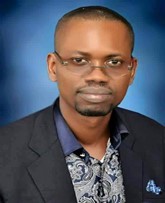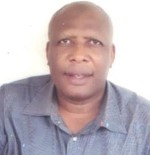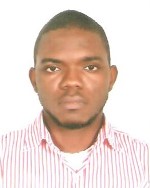Causing Dysfunctions within Project Teams
in the South-South Geopolitical Zone of Nigeria
FEATURED PAPER
George, D.A.K.1, Okolie, K.C.2, Ezeokoli, F.O.3 and Okongwu, M.I.4
1Special Adviser to the Governor and Head, Bureau for Special Projects, Rivers State, Nigeria.
2Professor, Department of Building, Nnamdi Azikiwe University, Awka, Anambra State, Nigeria
3Lecturer I, Department of Building, Nnamdi Azikiwe University, Awka, Anambra State, Nigeria
4Graduate Assistant, Department of Building, Nnamdi Azikiwe University, Awka, Anambra State, Nigeria
ABSTRACT
The study aimed at investigating the environmental factors causing dysfunctions within project teams with a view to improving the sub-optimal performance experienced by construction project teams in south-south geopolitical zone of Nigeria. To achieve this, the study identified and ranked the environmental factors causing dysfunction within the project teams in the study area. The study adopted the triangulation method otherwise known as the mixed method approach for its methodology. The population of this study is 380 consisting of the three major construction stakeholders, namely; the client, consultants and contractors from which 327 questionnaires were sampled using stratified random sampling. Data for this study were gathered for both qualitative and quantitative purposes using questionnaires, focus group meetings and interviews. The results were analyzed using descriptive and inferential, statistics (Mean, Percentage, t-test which was used to test the hypotheses guiding this study) and the findings were presented using tables and figures. The findings revealed that inadequate project financing, community disturbances / interferences and political instability were major environmental factors causing dysfunctions in a project team. In addition to this, access to new technologies, unconducive work environment, regulatory framework, laws and policies, level of authority/organizational reporting structure, unrealistic timeliness, delay of payment, lack of adequate training and professional development were found to be among the top 8 leading environmental factors causing sub-optimal performance in a project team. The study concludes that since community restiveness, youth interference are among the top leading environmental factors leading to sub optimal performance of these construction project stakeholders, there should be a proper sensitization of community and youths through their community heads and leaders. This sensitization will let them know that the projects are in their favor and not against them. These projects will stimulate economic growth, reduce employment and other social vices in the area.
Keywords: Environmental Factors, Sub-Optimal Performance, Construction Project Stakeholders, Construction Project Managers (CPM).
INTRODUCTION
Project failures are estimated to cost hundreds of billions of Euros yearly (McManus and Wood-Harper, 2008) and are not limited to any specific region or industry (Flyvbjerg, Bruzelius, and Rothengatter, 2003; Nicholas, Sharma and Spires, 2011; Pinto and Mantel, 1990). Nigeria has become the world’s junk yard of abandoned and failed projects worth billions of naira (Hanachor, 2012). This phenomenon is worrisome and one of the major reasons for these failures are human and environmental factors amongst construction project stakeholders.
The 21st century brings with it many challenges for Construction Project Managers (CPM) in the construction industry (Bhargav Dave and Koskela, 2009), and these challenges are highlighted by the perception that construction industry stakeholders’ performance is sub-optimal, both nationally and internationally (Egan, 1998; Carr and Tah, 2001; Aibinu and Jagboro, 2002; Takim, Akintoye and Kelly, 2003; Ballard and Howell, 2004b; Leung, Ng and Cheung, 2004a; Assaf and Al-Hejji, 2006; Xue, Wang, Shen and Yu, 2007; Emuze, 2011; Xianhai Meng, 2012; X Meng, 2012). Egan emphasizes that: “the industry will need to make radical changes to the processes through which it delivers its projects” (Egan, 1998). This poor performance has had a negative toll on the performance of projects.
In the constant search for a solution to the enigma of project success, researchers of related literature as would be shown in the review have over an extensive period of time identified many quantifiable variables, models, success factors and other related issues. These efforts highlighted that, in most cases, project success is a top priority and an outcome when undertaking a project (Alzahrani and Emsley, 2013). The CPM’s role in the attainment of success has also been widely researched, especially with regards to the impact, influence, methods and tools related to the discipline (Shenhar, Dvir, Levy and Maltz, 2001; Collins and Baccarini, 2004; Shokri-Ghasabeh and Kavousi-Chabok, 2009; Hefer, 2012). Nevertheless, the general concern remains, that industry performance is currently sub-optimal, especially in meeting cost, quality and schedule requirements.
With reference to the above mentioned challenges and the identified performance factors (Scholl, 2003; Werner et al., 2011; McShane and von Glinow, 2013), it can be argued that motivation and the environment in which role-players operate in the construction industry, would affect their performance (Herzberg, 1965, 1968). The notion of environmental factors is much more general, referring to all circumstances surrounding the project during its execution; thus we can consider environmental factors as all the conditions that are beyond the direct control of the project team and which impact positively or negatively on the project (information technology management platform, 2015). External environmental factors on the other hand are those factors that are largely beyond the control of construction project stakeholders. Variables that measure external environmental factors include the political environment, economic environment and social environment. Gudiene, Banaitis, Banaitene and Lopes (2013) developed a conceptual critical success factor model for construction projects. The identified factors were classified into seven main groups; external factors, institutional factors, project related factors, factors related to project management, team member’s factors related to clients and factors related to contractors. The variables measuring external factors include the political environment, the economic environment and the social environment, amongst others.
A literature scan on current debate and discussions relating to research in the construction industry reveals that the construction role-player performance in South-South Nigeria is sub-optimal. Now the question is, how can role-players be motivated and the operating environment improved to optimize performance in a construction project? This study therefore seeks to provide a better understanding of the current sub-optimal performance of construction role players in the project environment as a result of the environmental factors.
More…
To read entire paper, click here
How to cite this work: George, D.A.K., Okolie, K.C., Ezeokoli, F.O., Okongwu, M.I. (2021). Investigation of Environmental Factors Causing Dysfunctions within the Project Teams in the South-South Geopolitical Zone of Nigeria, PM World Journal, Vol. X, Issue IX, September. Available online at https://pmworldlibrary.net/wp-content/uploads/2021/09/pmwj109-Sep2021-George-Okolie-Ezeokoli-Oknngwu-environmental-factors-for-dysfunction-in-project-teams1.pdf
About the Authors

Dakorinama A. K. George
Rivers State, Nigeria
![]()
Dakorinama Alabo Kelly George, FNIQS, RQS, FASP; popularly called George-Kelly is a Rivers man of Kalabari extraction born by late Evangelist Alabo K.F George; a Russia trained radar engineer, an air force retiree from Buguma in Asari-Toru LGA of Rivers State and Mrs. Mary George, a retired medical practitioner from Ikom in Cross-River State. He has distinguished himself as a world class-chartered Quantity Surveyor and Cost Engineer, highly experienced in Project Management, Cost Planning, Value Engineering, Risk Management and Civil Engineering. After his primary and secondary education in Benue State and Rivers State respectively, George-Kelly proceeded to the Rivers State University of Science & Technology, where he obtained successive degrees – a Bachelor of Technology Degree in Quantity Surveying and Post Graduate Diploma in Civil Engineering. He furthered his studies in the Enugu State University of Technology where he acquired a Masters of Science Degree in Quantity Surveying/Cost Engineering and also emerged as the best graduating student in the department of Quantity Surveying/Cost Engineering. He is at the verge of completing his PhD. program in building (Construction Management option) in the premiere Nnamdi Azikiwe University, Awka; which is at the external defense stage.
George-Kelly continued to excel professionally. He received the award as the Best Overall Performing Candidate in the Federation – NIQS Test of Professional Competence examination and Professional Competence Interview in 2006. He was also presented the prestigious CAP Plc Best Quantity Surveyor Award – 2006/2007. He is a corporate member of several professional bodies including the Nigerian Institute of Quantity Surveyors (Chartered), Quantity Surveyors Registration Board of Nigeria, Association for the Advancement of Cost Engineers Int’l, USA, Institute of Strategic Management of Nigeria (ISMN), etc. He is a fellow of the Nigerian Institute of Quantity Surveyors and the immediate-past National Secretary on Marketing & Corporate Affairs at the NIQS national executive council.
As a Principal Manager (Infrastructure) in NDDC, he initiated, planned and managed over 500 Civil Engineering and Building Projects. As well as being a member of the Alumni and other institutions he attended, he is currently serving as the Vice Chairman – League of Rivers Professionals, an aggregation of sharp-witted professionals of Rivers origin.
George-Kelly has practiced both in the Project Monitoring Directorate; Environmental Protection and Control Directorate and Utilities/Infrastructural Development Directorate, for 14 years in the NDDC. He served as the Technical Assistant to the Rivers State Representative (NDDC) in 2006 and also served in several high-profile technical committees in NDDC. While in NDDC, he took his level of excellence steps further – and showcased himself as a good team builder, strategic manager and human resource manager. He is also a Principal Consultant to three construction consultancy firms in Nigeria. In March 2020, he resigned his appointment with the NDDC to take up appointments with the Government of Rivers State.
His public life is common knowledge. He socializes with like minds, believes in developing people and loves the art of politics of wit and strategy. This interest started when he was National President of NURSS in his university days. He was appointed a member of the governing council of the Ken Saro-Wiwa Polytechnic, Bori from June, 2015 to November, 2019. In November 2017, he was appointed as the Special Adviser on Special Projects to the Governor of Rivers State. In 2019 till date, he was reappointed as the Special Adviser to the Rivers State Governor & Head, Bureau for Special Projects. In his current capacity as the Special Adviser to the Rivers State Government, he has managed over 100 projects; some completed and others at various levels of completion. George-Kelly He is married to Mrs. Inkoba D.A. George and blessed with three kids, a girl and a set of twin boys (Vera Owanari D.A. George, God’sson Dakorite D.A. George & God’swill Tamunosaki D.A. George).
The first sport to interest him was table tennis, a sport he still enjoys actively to this day. He is a fan of Manchester United Football Club. George-Kelly enjoys dancing and he is often described as a friendly and relaxed character – always willing to help the needy.

Dr. Kevin Chuks Okolie
Anambra State, Nigeria
![]()
Prof. Kevin Chuks Okolie holds a Doctor of Philosophy Degree in Construction Management from Nelson Mandela Metropolitan University, Port Elizabeth South Africa. His research interest lies in the development of Building Performance Evaluation Methodology, Health and Safety Management and Built Asset Management Systems. His published papers and articles on Construction and Facilities Management have appeared in many international conferences and peer reviewed journals. Prof Okolie can be contacted at kc.okolie@unizik.edu.ng

Dr. Fidelis Okechukwu Ezeokoli
Anambra State, Nigeria
![]()
Dr. Fidelis Okechukwu Ezeokoli is a Lecturer in the Department of Building, Nnamdi Azikiwe University with vast experience in building construction and management. He has successfully delivered a number of building projects to time, desired quality and within the client’s budget He holds a Doctor of Philosophy Degree in Construction Management from Nnamdi Azikiwe University, Awka, Nigeria. His research interests are in flood resilient buildings, building materials and project management. He is a member of the Nigerian Institute of Building (MNIOB) and is registered with the Council of Registered Builders of Nigeria (CORBON). Dr Ezeokoli can be contacted at okeyezeokoli@unizik.edu.ng

Michael Ikechukwu Okongwu
Anambra State, Nigeria
![]()
Bldr. Okongwu Michael Ikechukwu is a Graduate Assistant in the department of Building Nnamdi Azikiwe University, Awka. He obtained a Bachelor of Science from Nnamdi Azikiwe University Awka, Higher National Diploma and National Diploma from Abia State Polytechnic Aba, Abia State. He is presently rounding off his MSc. programme in Construction Management in Nnamdi Azikiwe University, Awka. His research interests are in housing delivery, building materials and construction management. He is a member of the Nigerian Institute of Building (MNIOB) and is registered with the Council of Registered Builders of Nigeria (CORBON). Bldr. Okongwu can be contacted at im.okongwu@unizik.edu.ng









